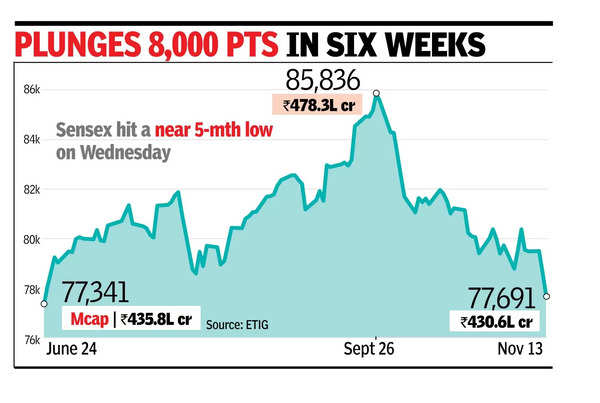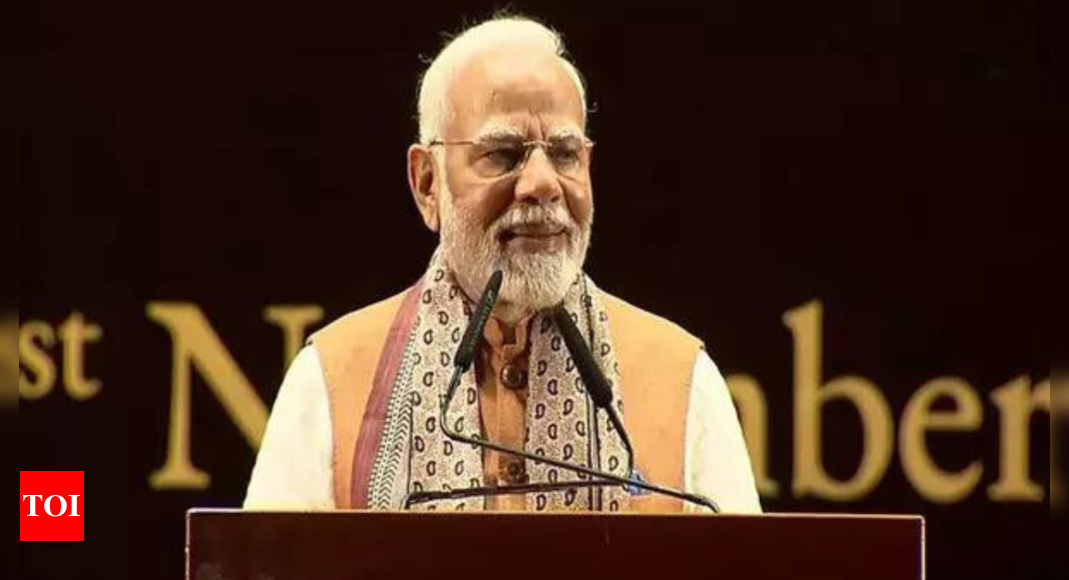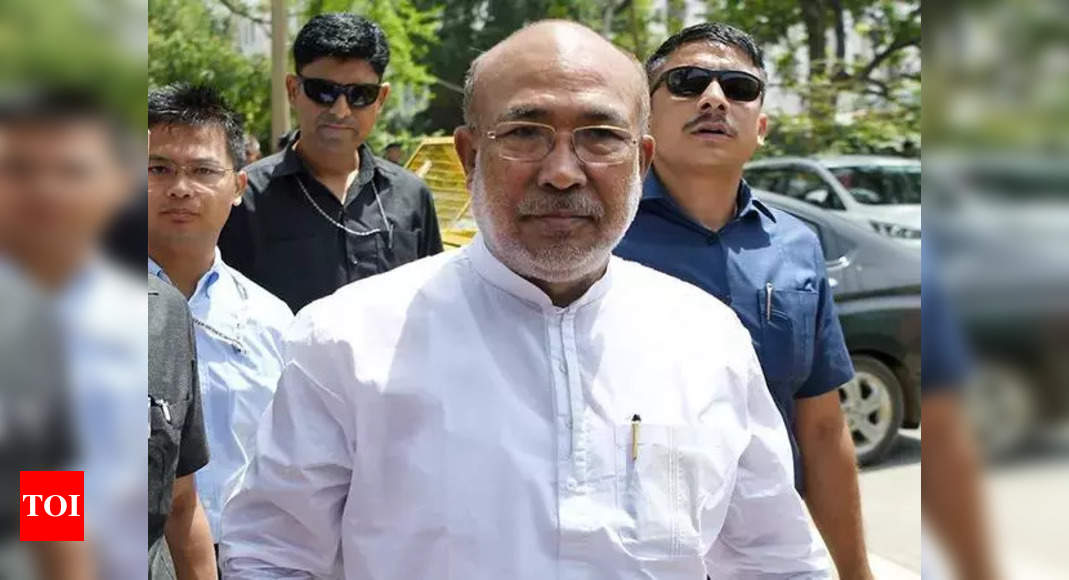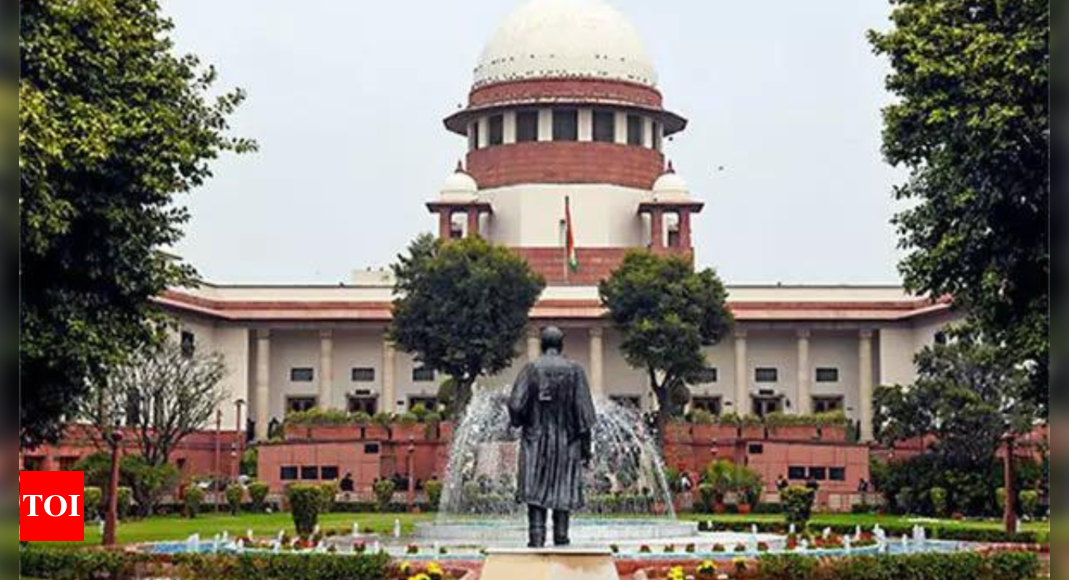

MUMBAI: The recent market crash that started in Oct has left Indian investors poorer by more than half a trillion dollars. With the sensex now down nearly 10% from its all-time high in late Sept, BSE’s market capitalisation has dipped by about Rs 48.5 lakh crore (or $620 billion) to Rs 429.5 lakh crore, official data showed.
On Sept 27, BSE’s market cap was at an all-time peak at about Rs 478 lakh crore. At that day’s rupee-dollar exchange rate, the bourse’s market cap was $5.7 trillion. And on Wednesday, the bourse’s market cap stood at $5.1 trillion.

This massive slide in investors’ wealth came on the back of relentless selling by foreign funds which, in turn, was because of US election-related uncertainties globally. Before the election, investors globally were unsure who will be elected the president of the US. But now, after the results, investors are worried how the policies of incoming president Donald Trump would impact markets around the world.
On the domestic front, weak corporate results and a surge in retail inflation reading to a 14-month high weighed on investor sentiment, market players said.
Between Oct 1 and now, foreign portfolio investors have net sold stocks worth nearly Rs 1.2 lakh crore, data from NSDL and BSE showed. This translates to nearly $14 billion.
Although domestic institutional investors have net pumped in over Rs 1.3 lakh crore into stock since Oct 1, unlike in FY22 and FY23, this time it has proved to be inadequate to arrest the market’s slide, a report by Axis Securities said.
On Wednesday, the sensex lost 984 points or 1.3% to close at 77,691 points — a level not seen since June 24 this year. On the NSE, Nifty lost 324 points or 1.4% to close at 23,559 points. Both indices have lost about 10% from their respective all-time highs recorded at the end of Sept.
Nifty has now fallen for the fifth consecutive session and has entered correction territory with a 10% drop from its recent high, Deepak Jasani, head of retail research at HDFC Securities, said. “Increased cash market volumes on the NSE suggest that local investors are engaging in bottom-fishing activities.” Jasani, however, pointed out that broad market indices — mid-cap and small-cap benchmarks — have declined even more sharply than Nifty.
Wednesday’s session also saw the end of the road for weekly bank Nifty contracts on the NSE.









